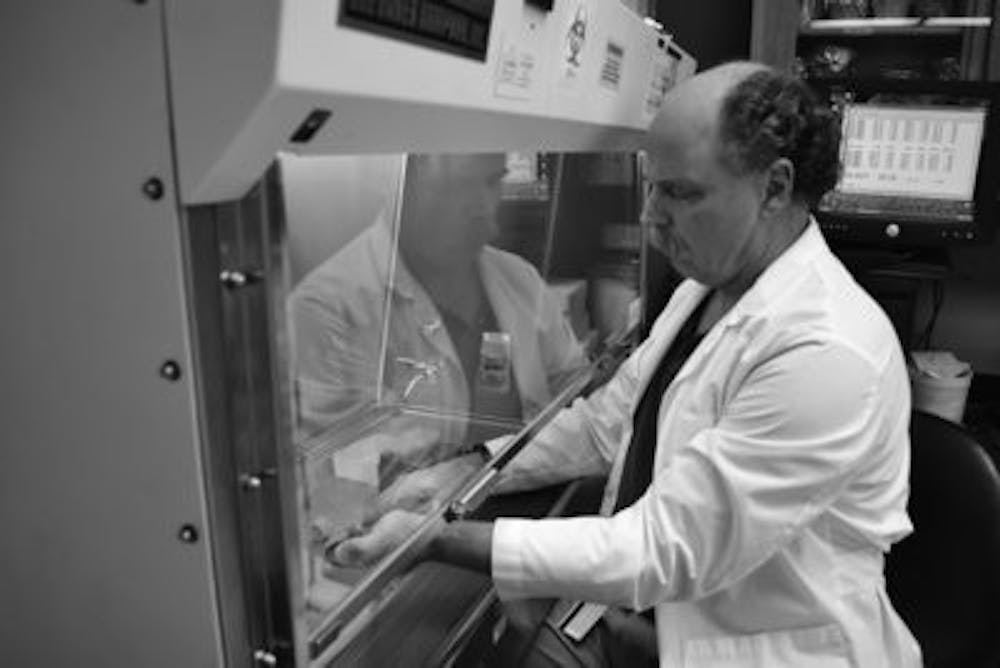In Auburn's College of Veterinary Medicine, a new initiative is making headway in cancer research.
The school received $1 million from the state of Alabama and obtained the largest collection of breast carcinoma and melanoma of dog tissue in the world.
"The program's focus is not on identifying treatments for cancer in the dog exclusively and then transferring it to humans (or vice versa)," said Bruce Smith, director of the Auburn cancer research initiative and professor of pathobiology. "What we want to do is use our ability to perform investigations, to do research and to identify ways in which we can treat cancer regardless of the species."
The researchers will be working with client-owned pets for their experiments.
"You might ask, 'Why those animals?'" said Curtis Bird, director of flow cytometry for the cancer initiative and professor of pathobiology. "(These pets) live in the same environments we live in, the same homes, and a lot of the time they eat the same food, breathe the same air and sleep in the same beds. They live in our environment and are exposed to the same genetic assaults that we are."
Smith and Bird said all the animals are volunteered by their owners for the research.
"It's inescapable that many of these ways need to be tested in research animals first for safety and for the ability to make (the cells) do what we want them to do," Smith said.
The initiative began when Speaker of the House Mike Hubbard lobbied for cancer research funds from the Alabama legislature.
"With the money, we will be giving out C-grants to people at Auburn, which will help leverage funding," Smith said.
Auburn's veterinary school will give researchers a sum of money to collect preliminary data for cancer research in order to build a larger grant, Smith said.
"We're willing to work with other colleges here at Auburn, like the College of Engineering may be working on a new ways to package a drug that (the vet school) might be working on," Smith said.
The initiative will focus on a wide range of tactics to try to find a way to treat cancer.
"The program goes everywhere from the laboratory bench, like working with cell cultures and individual cells and genes, to working with viruses that might transfer genes, to developing a new pharmaceutical compound in chemistry laboratory, to finding a new way of packaging that compound so it goes directly to defective cell, instead of causing bad side effects," Smith said.
Smith said new discoveries are being made every day in research, but Bird believes a cure might still be out of reach.
"I'm not a big fan of the word 'cure,' because unlike a disease where you catch it, like a cold or the flu where you don't have it until you catch it, cancer's not like that," Bird said. "Cancer's a lifetime of genetic abuse that you encounter living your life. During that time the abuse accumulates in single cells, and eventually enough damage occurs and those cells become cancerous."
Smith said this is an exciting time to be in cancer research at Auburn.
"We're looking for people all over the University who are interested in cancer research to join us," Smith said. "That means this is an initiative that involves students and staff. We can use help anywhere from filing to public relations to artwork."
Auburn's cancer initiative team hopes to make leaps in cancer research to extend patients' lives, Smith said.
"There's a saying that oncologists are fond of: 'They want the patients to die with the tumor, not from the tumor,'" he said.
Do you like this story? The Plainsman doesn't accept money from tuition or student fees, and we don't charge a subscription fee. But you can donate to support The Plainsman.





